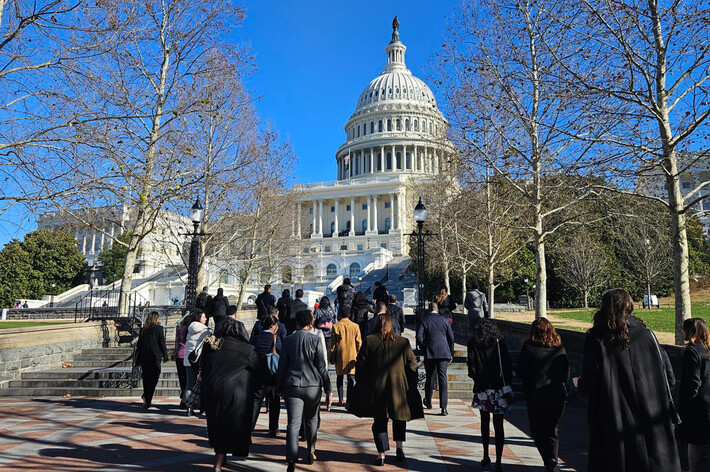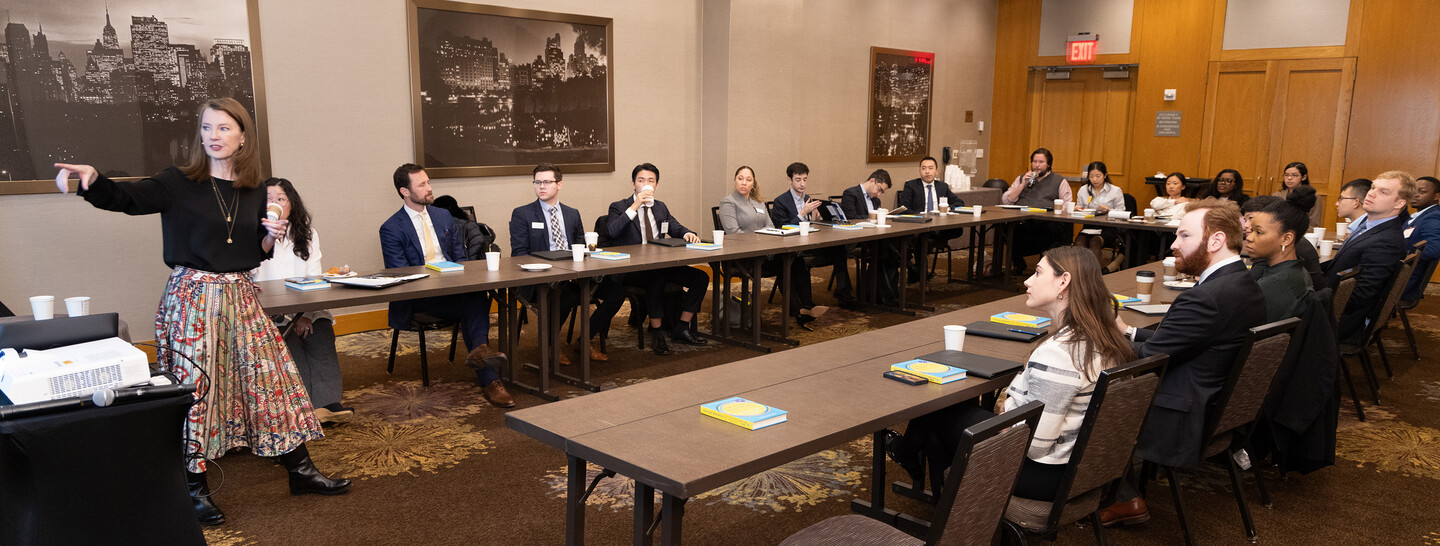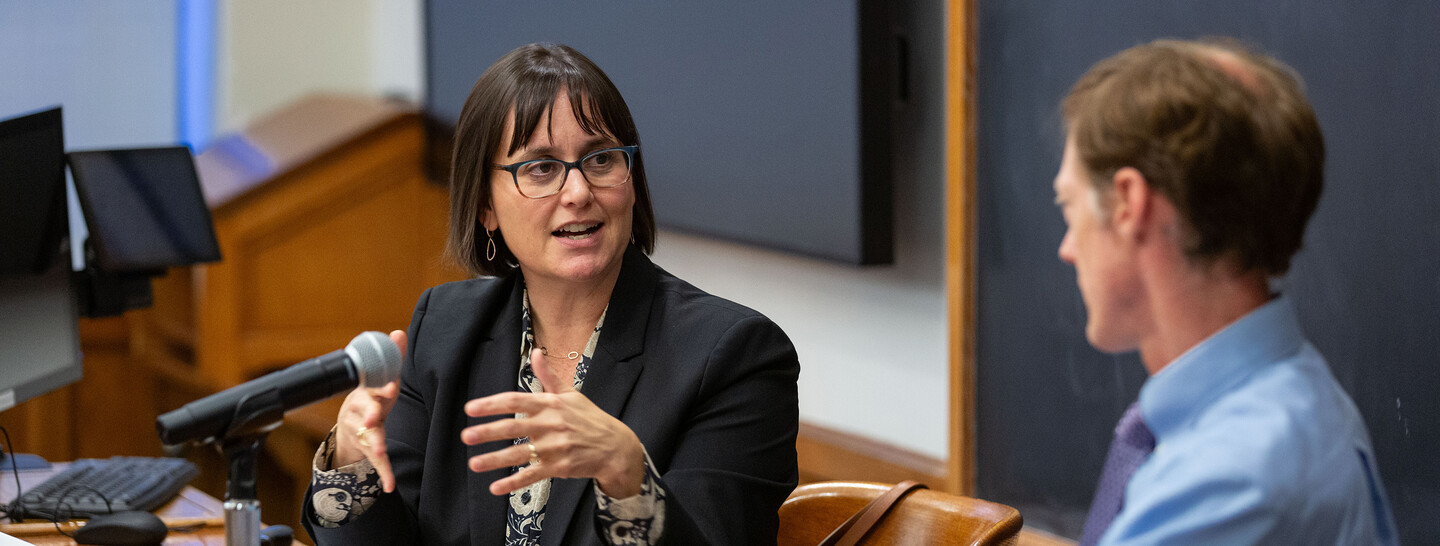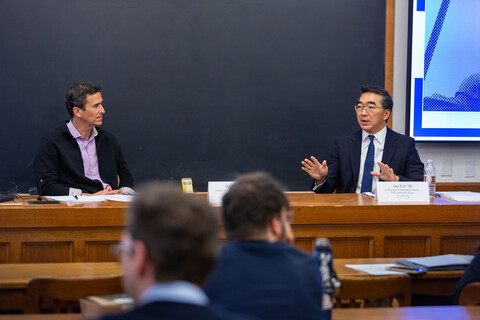The 2023–2024 academic year brought a full array of Leadership Program courses, reading groups, workshops, and events.
Classes, which are designed to equip students with the intellectual foundation and skills that are transferable to any career they choose, including career paths outside of traditional lawyering, covered a versatile range of subjects.
For the second year in a row, the Program offered a course called The Lawyer as Leader, exploring the role of the in-house counsel, co-taught by Benjamin Heineman ’71, former general counsel of General Electric, and Harold Hongju Koh, Sterling Professor of International Law.
Other courses included Corporate Finance, taught by Associate Professor of Law Natasha Sarin; Everyday Leadership, taught by Heidi Brooks, Senior Lecturer in Organizational Behavior at the Yale School of Management; and Public Leadership and Policymaking, taught by Jacob Hacker, Stanley B. Resor Professor of Political Science at Yale University, and Cristina Rodríguez ’00, Leighton Homer Surbeck Professor of Law at Yale Law School. (Hacker and Rodríguez both serve as Faculty Directors for the Ludwig Program).
Rodríguez also led a reading group titled How to Be An Effective Policymaker in the fall. Two additional reading groups offered this academic year included Leadership Ethics with Amy Schulman ’89, co-facilitated by Dean Heather K. Gerken, Sol & Lillian Goldman Professor of Law, and Schulman, a Managing Partner at Polaris Partners; and Post-Dobbs Strategy, facilitated by Fatima Goss Graves ’01, President and CEO of the National Women’s Law Center.
All Yale Law School students had the opportunity to attend financial literacy workshops on topics — with titles ranging from Understanding Financial Statements to Corporate Valuation Methodologies and Financial Modeling — that ran throughout the year.
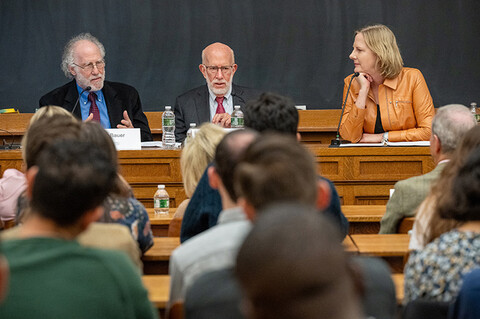
A series of events focused on New Haven Leadership hosted a tour of the Dixwell, New Haven-based arts center NXTHVN, as well as a social entrepreneurship alumni panel, and a visit from New Haven Mayor Justin Elicker.
During Entrepreneurship Weeks in October, students heard from C-suite executives and company founders. Speakers included Madhuri Kommareddi ’00, who spoke about entrepreneurship through acquisitions; Jay Koh ’98, who discussed adaptation investment strategies for climate change; Basha Rubin ’10 and Mirra Levitt ’10, who shared how they create technologies to connect outside counsel; and Jane Park ’96, who spoke about consumer goods production and scaling her start-ups.
The Crossing Divides Speaker Series, which launched in October 2023, hosted more than a dozen events, including lectures, faculty panels, and conversations among experts and jurists on different sides of the political spectrum on how to work together across ideological differences.
Students also attended workshop series, including ones titled Procedural Justice and another called Negotiation for Lawyers, as well as many standalone talks and events.
An annual highlight of the Leadership Program is its educational trips, which are designed to expose students to a wide range of possible careers in the law. In January, Chae and Ludwig Fellows traveled to New York City5 and Washington, D.C.6, respectively, to meet alumni leaders in the private and public sectors.
“One goal of the Fellows programs is to offer students the opportunity to meet with and learn from leaders who have taken diverse paths towards their goals,” said Margie Adler, Co-Head of The Tsai Leadership Program and Executive Director of the Ludwig Program. “Participation in speaker events, small lunches with visiting leaders and student trips provide those opportunities.”
Another goal of the Leadership Program is to deliver the educational opportunities on multiple fronts, said Mary Herrington, Co-Head of the Tsai Leadership Program and Executive Director of the Chae Initiative. “Students receive in-depth instruction in courses with our visiting faculty and then augment their coursework with shorter format workshops that teach leadership practicums. These ample opportunities are spaced throughout the year to ensure that students can take advantage of any or all of them,” she said.
